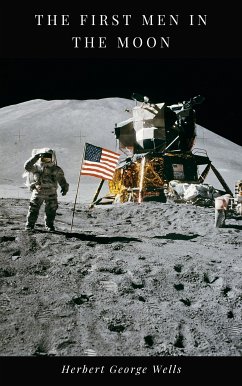
Washington and the Riddle of Peace (eBook, ePUB)
Versandkostenfrei!
Sofort per Download lieferbar
2,49 €
inkl. MwSt.
Weitere Ausgaben:

PAYBACK Punkte
0 °P sammeln!
This fate is not threatening civilization; it is happening to civilization before our eyes. The ship of civilization is not going to sink in five years' time or in fifty years' time. It is sinking now. -from "The Immensity of the Issue and the Triviality of Man" In the wake of World War I, the victor nations came together to shape the postwar era... and in doing so, laid the ground for the next great war. That was already obvious in 1921, when H. G. Wells gathered in one volume his essays for the New York World, the Chicago Tribune, and other American and European newspapers written in reactio...
This fate is not threatening civilization; it is happening to civilization before our eyes. The ship of civilization is not going to sink in five years' time or in fifty years' time. It is sinking now. -from "The Immensity of the Issue and the Triviality of Man" In the wake of World War I, the victor nations came together to shape the postwar era... and in doing so, laid the ground for the next great war. That was already obvious in 1921, when H. G. Wells gathered in one volume his essays for the New York World, the Chicago Tribune, and other American and European newspapers written in reaction to what he saw and heard at the Washington Conference to organize the peace. Though known, along with Jules Verne, as one of the 19th-century fathers of science fiction, here Wells explores more down-to-earth issues, from the "problem" of Russia and Japan-and how little could hope to be accomplished at this conference without their participation-to the "economic decadence" of the world and how to arrest it. Wells' intriguing foresight shines through, making this a fascinating document of the international disaster of the World Wars. British author HERBERT GEORGE WELLS (1866-1946) is best known for his groundbreaking science fiction novels The Time Machine (1895), The Invisible Man (1897), and The War of the Worlds (1898). ALSO FROM COSIMO: Wells's God the Invisible King, A Short History of the World, and The Soul of a Bishop
Dieser Download kann aus rechtlichen Gründen nur mit Rechnungsadresse in A, B, BG, CY, CZ, D, DK, EW, E, FIN, F, GR, H, IRL, I, LT, L, LR, M, NL, PL, P, R, S, SLO, SK ausgeliefert werden.












